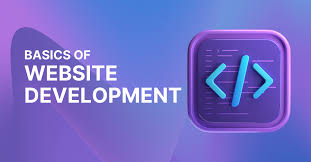IT companies are at the forefront of a transformative wave that is reshaping the landscape of modern business. As technology rapidly evolves...
IT companies are at the forefront of a transformative wave that is reshaping the landscape of modern business. As technology rapidly evolves, these innovative firms play a pivotal role in driving advancements across industries, enhancing efficiency, and unlocking unprecedented opportunities for growth. By leveraging cutting-edge technologies such as artificial intelligence, cloud computing, and data analytics, IT companies are enabling businesses to optimize operations, personalize customer experiences, and stay competitive in an increasingly digital world. This revolution is not only streamlining traditional business practices but also paving the way for new business models and markets, setting the stage for a future where technology and business are inextricably linked.
IT companies are fundamentally reshaping modern business through several key innovations and strategies: 1. **Cloud Computing**: By offering scalable, flexible, and cost-effective solutions, IT companies are helping businesses transition from in-house data centers to cloud-based systems. This shift allows companies to access vast IT resources on-demand, leading to savings on hardware and operational costs, and fostering remote work capabilities. 2. **Artificial Intelligence and Machine Learning**: Through AI and machine learning, IT companies are enabling businesses to automate processes, personalize customer experiences, and gain insights from big data analytics. This technology supports predictive analysis, improves decision-making, and enhances efficiency in sectors such as healthcare, finance, and customer service. 3. **Cybersecurity**: With the increase in digital transformation, IT companies are providing advanced cybersecurity solutions to protect businesses against the growing threat of cyberattacks. These solutions include encryption, network security, and sophisticated threat detection, ensuring data integrity and compliance with regulations. 4. **Internet of Things (IoT)**: IT firms are driving the adoption of IoT technology, which connects devices and systems to streamline operations and create smart environments. This connectivity allows for real-time monitoring and management of assets, improving logistics, energy management, and product development. 5. **Blockchain Technology**: IT companies are harnessing blockchain to enhance transparency, security, and efficiency in transactions and data management. The technology is being utilized in various industries, from finance (for secure transactions) to supply chain management (for tracking product authenticity). 6. **Augmented Reality (AR) and Virtual Reality (VR)**: These immersive technologies are revolutionizing industries like retail, real estate, and training by providing enhanced user experiences. Businesses can use AR and VR for virtual demos, employee training, and creating engaging customer interactions. 7. **Agile Development and DevOps**: By promoting agile methodologies and DevOps practices, IT companies help businesses achieve faster development cycles, improve product quality, and foster collaboration between development and operations teams. This approach allows for rapid adaptation to market changes and accelerated innovation. 8. **Big Data and Analytics**: By leveraging big data technologies, IT companies are enabling businesses to analyze vast amounts of data to uncover trends, improve decision-making, and enhance customer understanding. This data-driven approach is crucial for strategic planning and gaining a competitive edge. Through these advancements, IT companies are empowering businesses to innovate, operate more efficiently, and adapt to an ever-changing global market landscape. The integration of these technologies helps organizations enhance their productivity, react swiftly to business demands, and ultimately provide better value to their customers.
Top 10 IT Companies Revolutionizing the Tech Industry

In today's rapidly evolving digital landscape, IT companies play a pivotal role in driving technological advancements and shaping the way we live and work. From giants like Apple and Microsoft to emerging startups, these companies are at the forefront of innovation, spearheading developments in artificial intelligence, cloud computing, and cybersecurity. IT companies not only provide the infrastructure and tools necessary for businesses to thrive but also continuously push the boundaries of what's possible in the tech realm. As the demand for digital transformation grows across various sectors, IT companies are essential in crafting solutions that enhance efficiency, security, and connectivity worldwide. Their influence extends beyond the corporate sphere, enabling educational advancements, healthcare improvements, and economic growth on a global scale.
1. **Apple Inc.** Known for its innovative hardware and software, Apple continues to revolutionize the consumer electronics space with products like the iPhone, Mac, and Apple Watch. Their focus on design aesthetics and user experience sets industry standards. 2. **Microsoft Corporation** As a leader in software development, Microsoft's advancements in cloud computing with Azure, artificial intelligence, and productivity tools like Microsoft 365 drive significant shifts in how businesses operate globally. 3. **Amazon Web Services (AWS)** A dominant force in cloud computing, AWS provides a wide array of services that support enterprise-scale applications and innovations in data processing, AI, and machine learning. 4. **Google (Alphabet Inc.)** Through its emphasis on artificial intelligence and machine learning, Google leads advancements in search algorithms, advertising technology, and autonomous systems. Their Google Cloud platform also positions them as a key player in cloud services. 5. **IBM (International Business Machines Corporation)** With a deep focus on AI, IBM's Watson is at the forefront of cognitive computing. The company also revolutionizes industries through its blockchain solutions and commitment to quantum computing research. 6. **Tencent Holdings** A major player in social media and gaming, Tencent's adoption of AI and cloud services is significant. They also hold investments in various companies, influencing the global digital marketplace. 7. **Samsung Electronics** Pioneering advancements in semiconductor technology, displays, and consumer electronics, Samsung continues to push the boundaries in mobile technology and home appliances, with significant investments in 5G and AI. 8. **Intel Corporation** Intel's continuous innovation in semiconductor manufacturing and commitment to AI and autonomous technologies drive the evolution of computing infrastructure and smart devices worldwide. 9. **Facebook (Meta Platforms)** By shifting towards the metaverse, Meta is exploring new territories in virtual and augmented reality, aiming to transform social interactions and redefine the digital experience. 10. **Oracle Corporation** A leader in enterprise software, Oracle's cloud services and autonomous database technology empower businesses to handle data-driven tasks more efficiently, driving innovation in data management solutions. These companies continually push the technological envelope through research, strategic acquisitions, and development of groundbreaking products and services.
How IT Companies Are Shaping Our Digital Future

IT companies are at the forefront of shaping our digital future by driving innovation, connectivity, and technological advancements that transform how we live, work, and interact. They play a pivotal role in several key areas: 1. **Artificial Intelligence (AI) and Machine Learning (ML):** IT firms are developing sophisticated AI and ML algorithms that power everything from personal assistants and smart home devices to complex data analytics and predictive modeling in industries like healthcare and finance. AI is increasingly critical for automating tasks, enhancing decision-making processes, and developing new products and services. 2. **Cloud Computing:** By offering scalable and flexible cloud solutions, IT companies enable businesses and individuals to store, access, and manage data and applications over the internet. This shift reduces the need for physical hardware and infrastructure, facilitates remote work, and democratizes access to powerful computing resources. 3. **Cybersecurity:** As digital threats become more sophisticated, IT companies are tasked with developing robust cybersecurity measures to protect data and privacy. Innovations in this area include advanced encryption methods, threat detection systems, and comprehensive security protocols to safeguard sensitive information. 4. **Internet of Things (IoT):** The proliferation of IoT devices, powered by IT advances, connects various physical devices to the internet, enabling smarter homes, cities, and industries. IT companies are crucial in creating the infrastructures and platforms that support this interconnected ecosystem, allowing for improved efficiency and innovation. 5. **Blockchain Technology:** IT firms are exploring blockchain for its potential to revolutionize fields such as finance, supply chain management, and digital identity verification. By providing a distributed and secure ledger, blockchain can enhance transparency, security, and trust in digital transactions. 6. **5G and Connectivity:** The rollout of 5G networks spearheaded by IT and telecom companies is set to dramatically increase internet speed and connectivity, offering low latency and enabling new technologies like augmented and virtual reality, autonomous vehicles, and smart cities to flourish. 7. **Software Development and Open-Source Movement:** IT companies continue to innovate in software development, creating new tools and platforms that enhance productivity and creativity. The open-source movement also plays a critical role, fostering collaboration and rapid development cycles. 8. **Big Data Analytics:** By harnessing big data, IT companies enable organizations to gain valuable insights, optimize operations, and enhance customer experiences. This involves developing sophisticated tools for data collection, storage, and analysis. Through these advancements, IT companies are not only driving technological progress but also shaping economic, social, and cultural trends. As they continue to innovate, the digital landscape will evolve, ushering in a future where technology is even more deeply integrated into our daily lives.
The Rise of IT Companies in the Global Market
it support

The rise of IT companies in the global market has been a transformative force over the past few decades, shaping economies, societies, and industries worldwide. This growth can be attributed to several key factors: 1. **Technological Advancements**: Continuous innovations in technology, particularly in computing power, data storage, and telecommunications, have provided IT companies with the tools needed to develop sophisticated software and services. Moore's Law, which predicts the doubling of transistor density approximately every two years, has been a driving force behind these advancements. 2. **Digital Transformation**: Organizations across all industries have increasingly adopted digital technologies to enhance their operations, efficiency, and customer experiences. This shift has fueled demand for IT solutions, including cloud computing, cybersecurity, data analytics, artificial intelligence (AI), and enterprise software. 3. **Global Connectivity**: The expansion of the internet and mobile infrastructure has created a connected world where IT companies can reach new markets and customers more easily. The internet penetration rate has increased significantly, making IT solutions accessible to a broader audience. 4. **Startup Ecosystem**: A strong startup culture, supported by venture capital and incubators, has led to the rapid emergence of innovative IT companies. Silicon Valley, in particular, has served as a model ecosystem that has been replicated in other parts of the world, fostering innovation and entrepreneurship. 5. **Platform Economies**: The rise of platform-based business models, where companies operate as digital marketplaces or service providers, has revolutionized traditional industries. Companies like Amazon, Microsoft, Google, and Alibaba have established dominant positions by leveraging platform strategies, effectively creating ecosystems that attract users and developers. 6. **Outsourcing and Offshoring**: Many companies have taken advantage of cost efficiencies offered by outsourcing IT services to regions with lower labor costs, such as India and Eastern Europe. This trend has led to the growth of IT service giants that offer software development, maintenance, and consulting services on a global scale. 7. **Cloud Computing**: The shift towards cloud computing has been a significant enabler for IT companies. It allows businesses to scale rapidly, reduces the need for physical infrastructure, and supports new business models. Companies like Amazon Web Services (AWS), Microsoft Azure, and Google Cloud have become industry leaders by providing cloud-based solutions. 8. **Security and Compliance**: With the increasing emphasis on data privacy and security, IT companies specializing in cybersecurity have gained prominence. The need for robust security measures has driven the growth of companies offering solutions to protect against cyber threats and ensure compliance with evolving regulations. 9. **AI and Machine Learning**: Advances in AI and machine learning have opened new avenues for IT companies to innovate and offer cutting-edge solutions. From natural language processing to predictive analytics, AI is being integrated into everyday applications, enhancing their functionality and efficiency. 10. **Investment in R&D**: Leading IT companies continually invest in research and development to stay ahead of the competition. This commitment to innovation helps them develop new products and services, maintain technological leadership, and address future market needs. Overall, the rise of IT companies in the global market is a multifaceted phenomenon driven by technological advances, market demand, and strategic innovation. These companies continue to play a crucial role in shaping the future of business and society at large.
Evaluating the Impact of IT Companies on Innovation
Evaluating the impact of IT companies on innovation involves examining several key dimensions, including technological advancements, economic contributions, social implications, and influence on competitive landscapes. Here are some aspects to consider: 1. **Technological Advancements**: IT companies are often at the forefront of developing cutting-edge technologies such as artificial intelligence, machine learning, cloud computing, and blockchain. Their research and development efforts can lead to innovations that transform industries and ways of living. Assessing their patents, research publications, and new product launches can provide insight into their contribution to technological progress. 2. **Economic Contributions**: The economic impact of IT companies can be measured through job creation, GDP contribution, and corporate investment in local economies. These companies not only employ a significant portion of the workforce, directly and indirectly, but also drive economic growth by providing platforms for other businesses to operate and innovate. Studies and data from economic reports can quantify these aspects. 3. **Social Implications**: IT companies influence societal structures, including communication, information access, and education. The development of social media platforms, online education tools, and communication apps highlights their role in shaping social behavior and information dissemination. Evaluating their impact in this area can involve looking at changes in social interactions, media consumption patterns, and the democratization of information. 4. **Competitive Landscapes**: The presence of major IT companies often influences market dynamics, spurring competition and collaboration among firms. This competition can drive further innovation and result in a richer variety of products and services for consumers. The impact can be assessed through market analyses, competition reports, and trends in startup ecosystems and venture capital investments. 5. **Sustainability and Ethical Considerations**: IT companies are increasingly under scrutiny for their environmental impacts and ethical practices. Evaluating their sustainability initiatives, such as reducing carbon footprints and e-waste, as well as their adherence to ethical standards in areas like data privacy and labor practices, is crucial. Reports on corporate social responsibility and sustainability indices provide relevant insights. 6. **Policy and Regulation**: The relationship between IT companies and regulatory frameworks is significant. These companies often challenge existing regulations, leading to new legal considerations and policies. Assessing their impact here involves examining how emerging laws and regulations affect the pace and nature of innovation across industries. Through comprehensive analysis in these areas, the overall impact of IT companies on innovation can be thoroughly evaluated, providing insights into their role in shaping the future of technology and society.
IT Companies Leading the Way in Cybersecurity Solutions
Several IT companies are at the forefront of delivering cutting-edge cybersecurity solutions, addressing the growing threats in the digital landscape: 1. **Palo Alto Networks**: Known for its next-generation firewalls, Palo Alto Networks provides a comprehensive suite of security solutions. Their platform leverages AI and machine learning to offer real-time threat intelligence and security automation, enhancing threat detection and response times. 2. **CrowdStrike**: Specializing in endpoint security, CrowdStrike offers a cloud-native platform that protects against cyber threats. The company's Falcon platform provides advanced detection and prevention capabilities, utilizing AI-driven threat intelligence to secure endpoints and critical systems globally. 3. **Cisco Systems**: A leader in network security, Cisco offers a vast range of security products, including intrusion prevention systems, email security, and multi-factor authentication solutions. Cisco's SecureX platform unifies visibility, enables automation, and strengthens resiliency against threats. 4. **Fortinet**: Fortinet excels in providing integrated and automated cybersecurity solutions through its FortiGate product line. Its Security Fabric architecture seamlessly integrates with other critical security elements like endpoint, network, and cloud security, ensuring comprehensive protection against sophisticated threats. 5. **FireEye**: Known for its expertise in threat intelligence and incident response, FireEye provides solutions that focus on advanced persistent threat detection and response. Their Mandiant division is renowned for responding to major cyber incidents and offering strategic security insights. 6. **Check Point Software Technologies**: This company offers a range of security solutions including network security, endpoint protection, and cloud security. Their Infinity architecture is designed to prevent the fifth generation of cyberattacks with a consolidated system that combines real-time threat prevention, shared intelligence, and open interfaces. 7. **Symantec (NortonLifeLock)**: Providing consumer and enterprise security solutions, Symantec offers antivirus products, identity protection, and network security solutions. Their Global Intelligence Network detects new and emerging threats to provide comprehensive protection across all endpoints. 8. **IBM Security**: Incorporating AI and automation into its security offerings, IBM Security provides solutions such as QRadar for security information and event management (SIEM), and Guardium for data protection. They also focus on identity and access management and provide extensive threat intelligence services. 9. **McAfee Corp.**: Renowned for its antivirus and anti-malware software, McAfee also provides a broad spectrum of security solutions for both enterprises and consumers. Their products focus on endpoint security, cloud security, and threat intelligence. 10. **Trend Micro**: Specializes in cloud and endpoint security, Trend Micro offers solutions designed to protect hybrid cloud environments, safeguard the Internet of Things (IoT), and enhance endpoint protection through its Smart Protection Network, using threat intelligence to counter sophisticated attacks. These companies are recognized for their robust R&D investments, partnerships, and innovative technologies that address the ever-evolving cybersecurity challenges faced by organizations globally.

